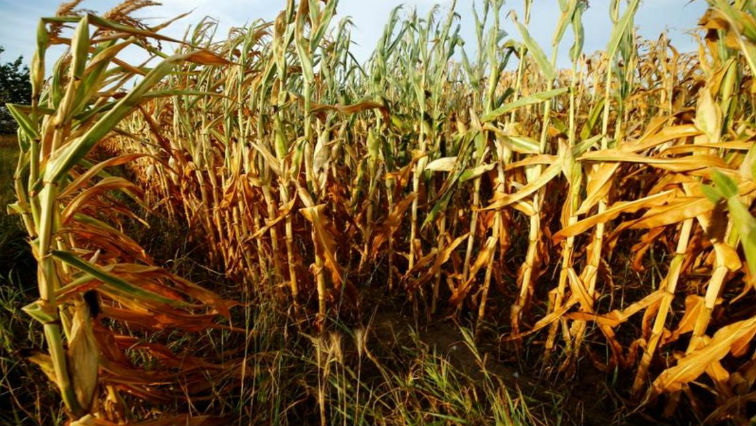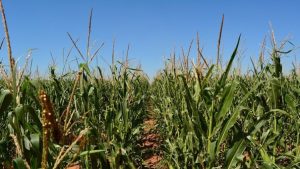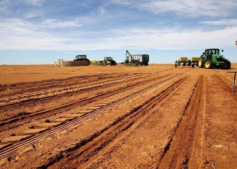South Africa’s farming industry experts confirm that changing weather patterns are affecting livestock and crops but that innovative solutions could help curb bad yields.
This comes after the South African Weather Service reported recently that this year’s winter was warmer than previous years. On average, Pretoria and Johannesburg are between two and three degrees Celsius warmer.
Effects of climate change, such as heat waves and flooding have forced farmers to change the way they do things.
Drought affected last year’s summer grains leading to lower harvest, causing maize prices to surge by 30%.
Grain SA Conservation Agriculture Facilitator, Dr Hendrik Smith says farmers have put in contingency plans ahead of this summer season so that crops are not affected in the middle of their cycle.
“The contingency plans we have to put in place as farmers… the first one I would say is moving towards conservation agriculture practices and that includes a couple of principles, first of all minimal disturbance of the soil because the moment you disturb the soil you erase a lot of organic matter or carbon out of the soil into the atmosphere where it contributes to global warming, it also releases soil moisture which you really need in your crop farming.”
CEO of the Red Meat Producers Organisation, Gerhard Schutte says livestock farmers also have to change their methods.
“In some cases, the temperatures are warmer, in some cases colder, and some cases wetter and some cases drier… so will have to adapt to those conditions – luckily if you look at the South African lifestyle industry we always say we have a very, very large gene pool in South Africa in terms of different breeds, and there is no good excuse not to farm with animals that are very well adapted towards the new climate conditions.”
Meanwhile, Chief Economist of the Agricultural Business Chamber of South Africa, Wandile Sihlobo is hoping that when planting season begins in October, there will be rainfall.
“The year that we were ending not a good one for summer crops in South Africa, we had bit of a drier season, the hope is we will return to normal rainfall in the season that begins in October.”
He says that crops were not affected in winter because they are largely grown in the Western Cape not across the country.






